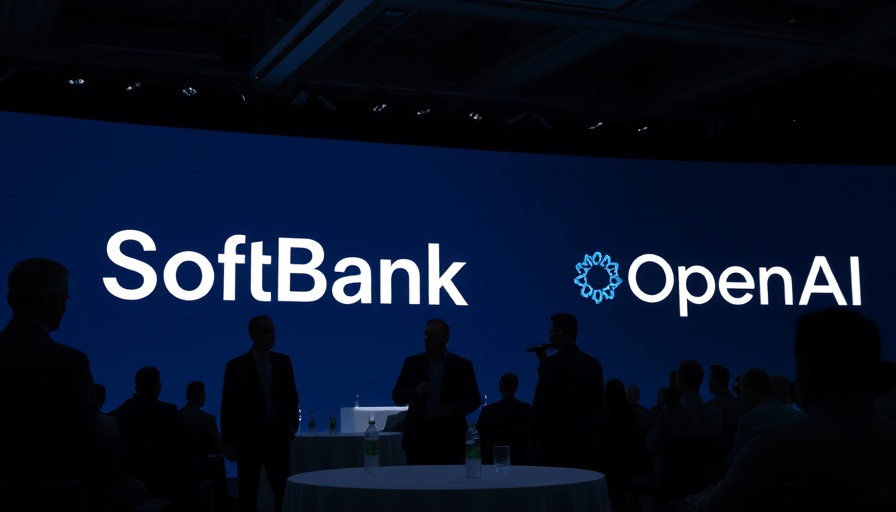
Revolutionizing AI with SoftBank and OpenAI
In a groundbreaking collaboration, SoftBank Corp. is set to join forces with OpenAI to launch artificial intelligence (AI) agents at a former Sharp LCD plant in Osaka, Japan. This strategic partnership underscores the growing importance of AI in various sectors and highlights how leading tech companies are investing significantly in AI capabilities. With plans to begin operations in 2026, the facility will mark a substantial step forward in the commercial application of AI technologies.
What's Happening at the Osaka Plant?
SoftBank has announced its intention to acquire a parcel of land along with the Sharp facility for approximately 100 billion yen (about $677 million). This former LCD panel plant will be transformed into an advanced data center intended for the deployment of AI agents, specifically designed to harness the capabilities of deep reasoning AI models developed by OpenAI. The investment heralds a substantial undertaking, potentially nearing 1 trillion yen (around $6.77 billion), as this project aims to create customized AI agents tailored to the needs of client companies.
The Significance of AI Agents
This initiative marks a notable leap in the deployment of agentic AI—AI systems capable of autonomous reasoning and decision-making processes. By using a former manufacturing site, SoftBank can utilize existing infrastructure while tapping into a vast energy supply required for AI operations, which is projected to demand around 150 megawatts of power. The collaboration not only aims to bolster the local economy but also positions Japan as a leader in AI technology.
Powering the Future: Ideals Behind the Investment
Beyond just a financial undertaking, SoftBank and OpenAI’s partnership reflects their commitment to advancing AI technologies in ways that could solve real-world challenges. By training AI agents on actual company data, they aspire to offer solutions that enhance productivity and operational efficiency. In a landscape where AI's influence continues to grow, this initiative could serve as a model for how industries can harness intelligent systems for unprecedented outcomes.
Counterarguments: The Risks of AI Development
While the prospect of AI development is enticing, it is not without its critics. Concerns regarding ethical implications and the reliability of AI technology persist. Some skeptics highlight the limitations of AI agents, including the potential for biases in decision-making processes. However, through careful design and ongoing testing, developers can mitigate these risks, ensuring that the technologies developed are not only effective but also responsible.
Future Trends in AI Technology
As the partnership unfolds, one can expect a surge in the conversation surrounding AI agents and deep reasoning AI. The success of this project could encourage similar ventures worldwide, pushing both private and public sectors to invest in AI capabilities. With research and development in agentic AI advancing rapidly, the next few years could witness transformative applications that redefine personal computing and business intelligence.
Conclusion: The Call to Embrace AI
As we stand on the brink of a new era in technology led by SoftBank and OpenAI’s innovations, it is essential for both individuals and businesses to embrace these advancements. By understanding the potential and limitations of AI agents, we can adopt technology that truly enhances our daily lives while steering conversations around ethical practices and responsible development.
For tech enthusiasts and professionals alike, monitoring developments in AI is crucial as it shapes the future landscape. Stay informed and engaged with the ongoing advancements in this thrilling field!
 Add Row
Add Row  Add
Add 




 Add Row
Add Row  Add
Add 

Write A Comment